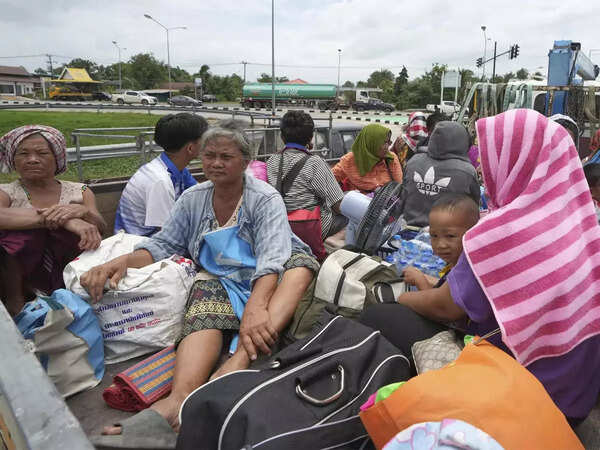Thailand Imposes Martial Law in Eight Districts Near Cambodia Amid Rising Tensions
In a significant escalation of regional tensions, the Thai government has declared martial law in eight districts along its border with Cambodia. This decision, made public on Tuesday, aims to restore order and security amid growing unrest and fears of potential conflict. The affected districts, known for their diverse ethnic populations and historical complexities, have been a focal point for increasing tensions between the two neighboring countries.
The backdrop to this dramatic move includes a series of incidents that have raised alarms in both nations. Over the past few weeks, there have been reports of skirmishes and heightened military presence along the border, fueled by disputes over territorial claims and cross-border smuggling activities. The Thai government has cited these developments as a catalyst for the imposition of martial law, which grants military authorities greater control over civil liberties and law enforcement measures. Observers note that the situation mirrors recent developments in other regions where military interventions have been deemed necessary to address escalating conflicts.
Thai Army spokesperson Major General Tanasak Patimaprakorn addressed the media following the announcement, stating, “The military is prepared to take necessary actions to maintain peace and stability in the region. We are committed to ensuring the safety of our citizens.” The declaration of martial law allows the military to impose curfews, restrict gatherings, and control media reporting, measures that have raised concerns about potential human rights violations. Local residents have expressed fears about the implications of such a significant military presence, recalling past instances where martial law led to civil unrest and public outcry.

Image for Thailand Imposes Martial Law in Eight Districts Near Cambodia Amid Rising Tensions
The implications of this development extend beyond the immediate border region. Analysts suggest that the move reflects a broader trend of increasing militarization in Southeast Asia, particularly as nations grapple with national security concerns amid regional power shifts. The historical context of Thai-Cambodian relations is fraught with disputes over territory and cultural heritage, particularly around the contested Preah Vihear Temple, which has been the source of conflict for decades. Experts warn that the imposition of martial law could exacerbate tensions and lead to a cycle of retaliation, similar to situations seen in other parts of the world as outlined in previous reports regarding military responses to civil unrest.
The potential consequences of this martial law declaration are significant. Immediate effects may include heightened military operations and increased surveillance in the border areas, which could lead to clashes between Thai forces and any groups perceived as threats. Additionally, the economic ramifications could be severe, as trade routes between Thailand and Cambodia may be disrupted, impacting local economies that rely heavily on cross-border commerce. As both nations navigate this precarious situation, the international community is watching closely, with calls for dialogue and de-escalation becoming more pronounced.
Looking ahead, the Thai government faces critical choices about how to manage the situation while balancing national security and civil freedoms. The imposition of martial law is a double-edged sword, offering a temporary solution to unrest but risking long-term consequences for civil society. As Thailand moves forward, the international community, including organizations like ASEAN, may need to intervene to facilitate discussions aimed at peaceful resolutions. The developments in Thailand will serve as a crucial case study in understanding the dynamics of military rule in the face of civil unrest, echoing similar situations in history where martial law has been employed as a means to an end.



![[Video] Gunfire between Iraqi security forces and Sadr militias in Baghdad](/_next/image?url=%2Fapi%2Fimage%2Fthumbnails%2Fthumbnail-1768343508874-4redb-thumbnail.jpg&w=3840&q=75)
